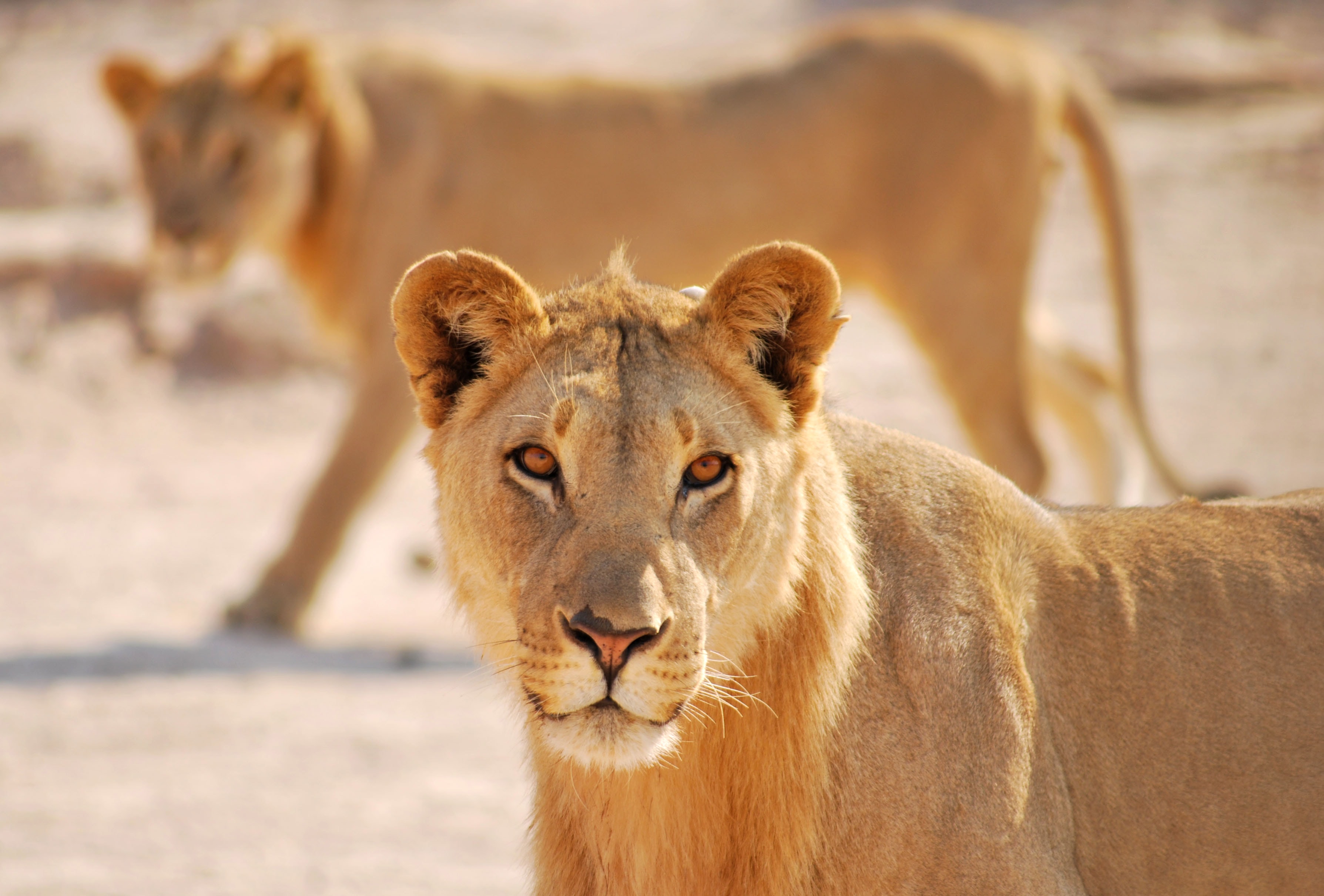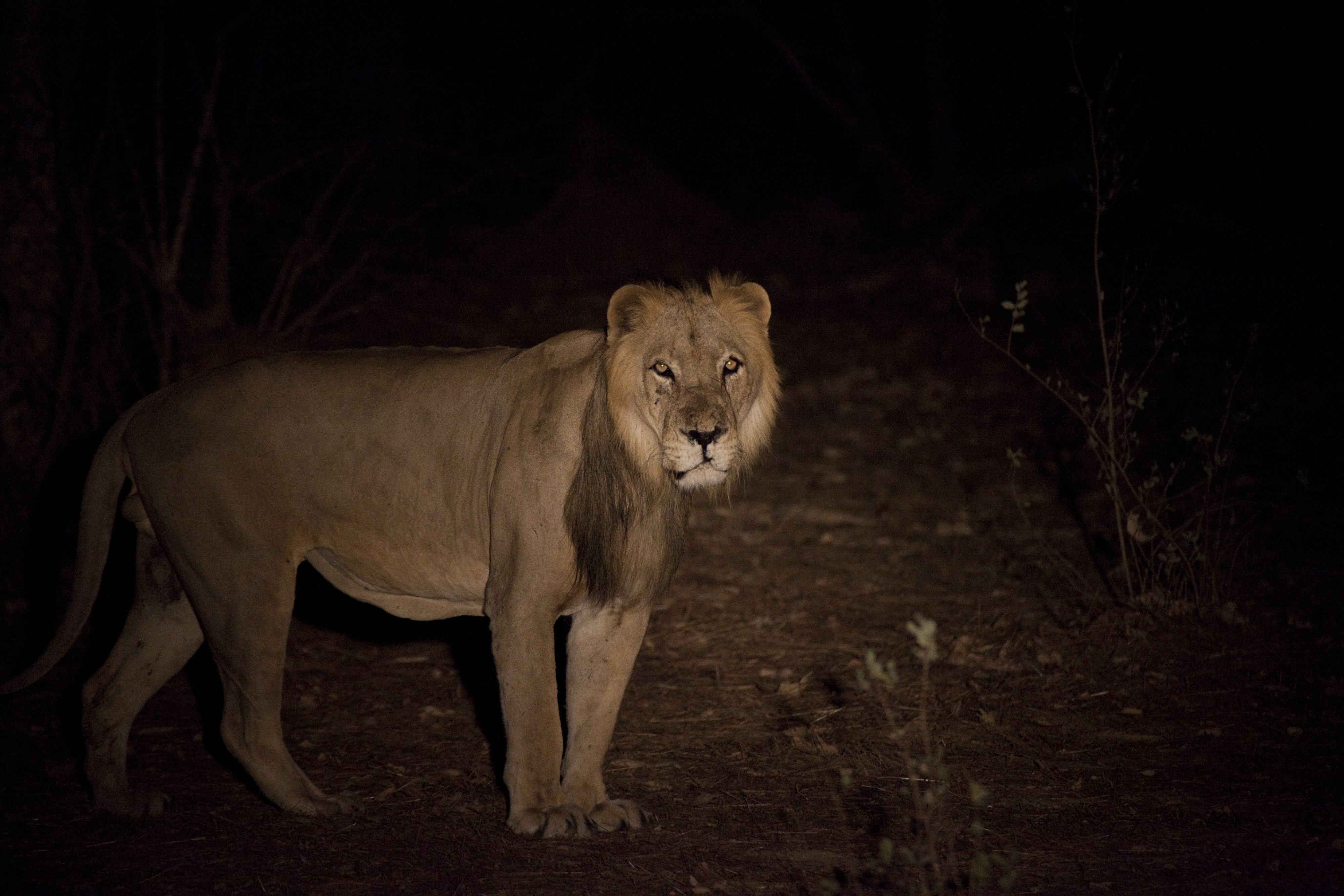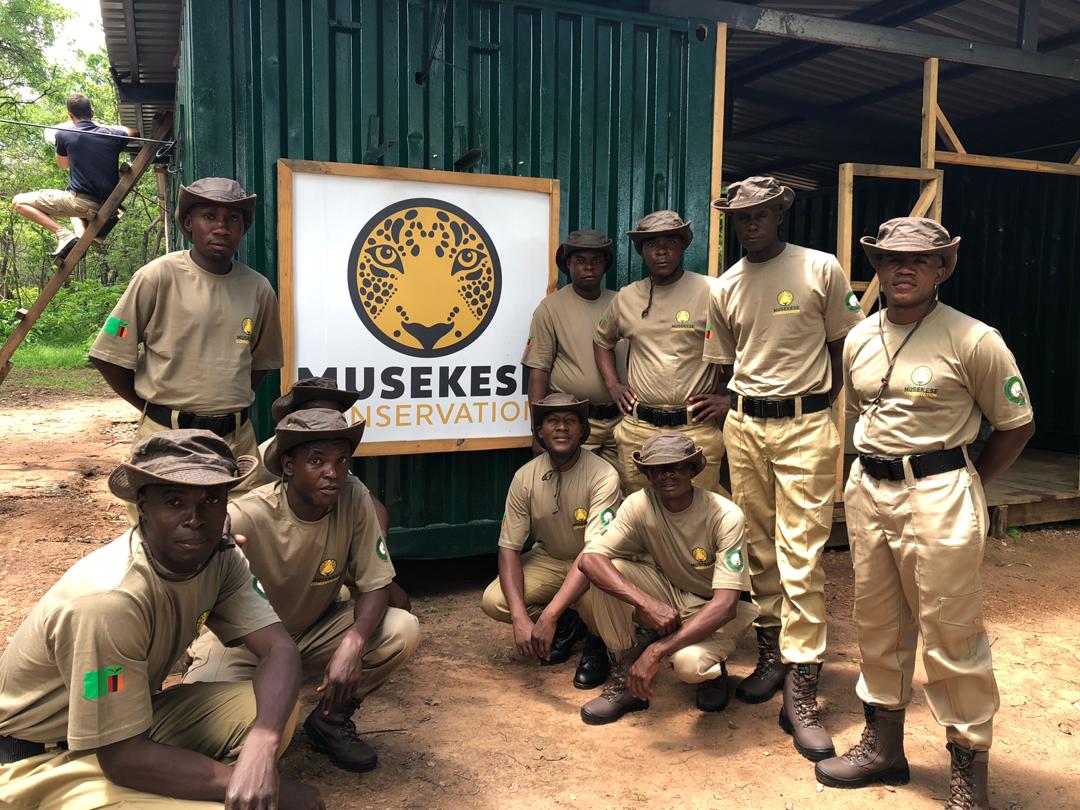The Lion Recovery Fund issued over 40 projects in 2019 and distributed a record-breaking $5 million in grants. Each organization that received funding from the LRF is advancing conservation efforts and awareness for lions across Africa by reducing threats to lions and prey species, protecting habitats, and engaging local communities to not only coexist with lions but also become advocates for their safety.
The LRF wrapped up a landmark year by issuing grants to 29 projects in the last six months. While this has been the biggest year to date for the LRF, there is still much work to be done. Below you will find a list of the most recent projects in each country where the LRF is making a positive difference on behalf of lions.
Central African Republic
- African Parks has been working to secure a vast block of wilderness in the Chinko Nature Reserve to help save lion populations that have been devastated by nomadic livestock herders. This vast wilderness has long term potential for lion conservation because there are no resident human populations in the area. Additionally, protecting this habitat results in the protection of a diverse range of other wildlife species. This is not only the first project that the LRF has ever funded in this country, but also the largest grant that the LRF has ever issued.
Chad
- African Parks also partnered with the Chadian government for the management of Zakouma National Park and have succeeded in controlling the rampant poaching previously found there. The LRF initially provided funds to African Parks to help them conduct surveys to guide expansion of their management footprint. More recently, we provided a second grant to help study the lion population. This is key because lion numbers have not been increasing, in spite of rapid increases in prey populations. The study will help identify any threats to the lions.
Namibia
- Desert Lion Conservation is fitting lions with tracking collars so they can monitor their movements and try to prevent conflict with local communities. They are able to warn livestock farmers of approaching lions as well as train rangers to act as a rapid response team to avoid unfavorable incidents between lions and the local people.
Nigeria
- The Wildlife Conservation Society (WCS) received a grant to aid their protection of the West African lion subspecies in Yankari National Park. LRF support will both strengthen park protection and allow for focused monitoring of the small lion population. WCS have noted with concern that the lion population has not been recovering in spite of rapid increases in prey abundance.
Senegal
- Panthera is protecting the lions in Niokolo-Koba National Park, the last of their kind in Senegal. The LRF funding they received will help support their ranger bases, radio network, equipment and operational costs, and monitoring infrastructure. This support will help keep lions and their prey safe from poaching.
South Sudan
- Fauna & Flora International seeks to reestablish effective park management in South Sudan’s largest protected area, Southern National Park. Decades of civil war have had a severe impact on South Sudan’s wildlife, and many of the protected areas are now effectively “paper parks.” Now that peace is returning to South Sudan, reestablishing effective management in parks and reserves is critical to the future of wildlife in the country.
Tanzania
- The bushmeat trade is a major threat to lions in Tanzania and across Africa, due to its impact in reducing prey densities and also the direct mortalities of the big cats in snares and traps. In addition, targeted poaching of lions for their body parts is emerging as a serious threat to the species. The LRF has provided a grant in support of Tanzanian authorities tackling these threats via a variety of anti-trafficking interventions. Due to the sensitive nature of this program, more information cannot be provided at this time.
- Honeyguide is striving to improve law enforcement and community management for the Makame Wildlife Management Area. By engaging locals to help protect the area, this vital lion habitat will become self-sustaining for future generations.
- Frankfurt Zoological Society is providing support to Tanzania National Parks Authority for the management of the iconic Serengeti National Park. LRF funding is helping them tackle snaring and illegal livestock grazing in the park.
- KopeLion has received additional LRF funding to strengthen their management team to further reduce human-lion conflict in Ngorongoro Conservation Area. Ngorongoro is home to nearly 100,000 people, many of which are livestock herders, so KopeLion plays a key role in working with locals to safeguard livestock to avoid retaliatory lion killings.
Zambia
- BioCarbon Partners and Lion Landscapes have established a project that combines site security with the verification and sale of lion-branded carbon credits. These credits provide funding for the protection of forests and the wildlife within, creating strong incentives for locals to protect both.
- The Wildlife Crime Prevention Project (WCP) has received funding from the LRF to tackle the illegal bushmeat trade through a campaign designed to reduce demand, as well as anti-trafficking measures to disrupt the trade. The LRF has also supported WCP’s efforts to obstruct trafficking of big cat body parts, thus addressing threats to both lions and their prey.
- Musekese Conservation partnered with Panthera to create a series of five intensive protection zones that have high tourism volume and high concentrations of carnivores in Kafue National Park in Zambia. LRF funding has helped them establish an anti-poaching base and undertake intensive patrols to tackle bushmeat poaching in the park.
- Conservation Lower Zambezi has been running a four man-two dog anti-poaching team to patrol trafficking hotspots around Lower Zambezi National park since 2016. They have apprehended more than 80 poachers in that time. The LRF granted them additional funds to train two more dogs for the team.
- WildCru is reducing human-lion conflict along the boundaries of Hwange National Park with their Longshields program. This program is designed to prevent livestock predation, and thus reduce the retaliatory killing of lions by local herding communities.
- Frankfurt Zoological Society (FZS) is developing an innovative human-lion conflict mitigation project in Gonarezhou National Park. The lion population in Gonarezhou has increased rapidly in recent years due to a partnership between FZS and the Zimbabwe Parks and Wildlife Management Authority. Conflict between humans and lions is sure to follow this increase, so FZS seeks to get ahead of this impending issue.
Regional Projects
- LRF’s grant to Conservation Capital is allowing them to work on revitalizing semi-protected ecosystems across Africa that have been gradually deteriorating due to their lack of national park status. By attracting conservation investment, they will preserve these ecosystems for lions and other wildlife.
- Endangered Wildlife Trust will convene with the scientific community to create management guidelines for surveying lions and their prey. This will clarify and unify the efforts of a number of different organizations as they continue their conservation research.
- Panthera is running a law enforcement training program, known as SMART, throughout Africa that helps rangers detect poaching hotspots and act with speed. Funding they received in 2019 will help them expand this training program to more LRF grantees.
To date, the LRF has pledged over $8.2 million to 83 projects with 35 organizations across 20 countries to support lion conservation.




